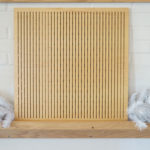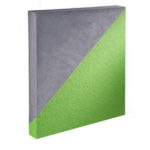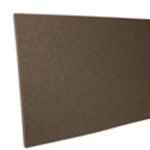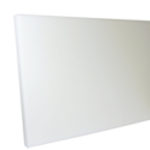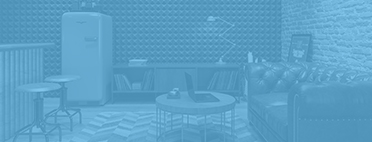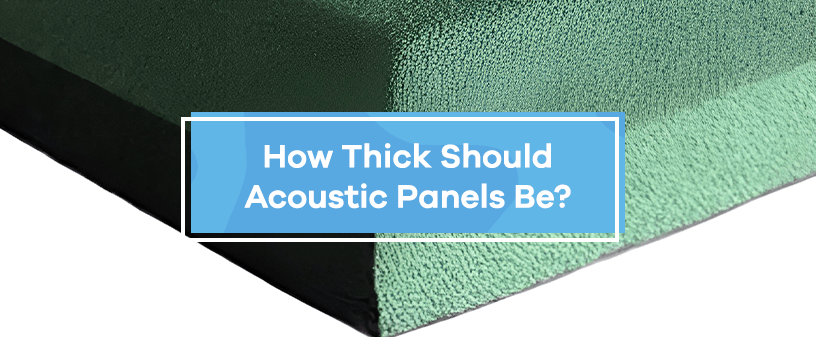
Acoustic panels make a room quieter by absorbing sound energy so that less noise reflects off hard surfaces. A panel’s thickness is one of its most important qualities for determining its absorption capabilities. But how thick should an acoustic panel be? Explore sound absorption and acoustic panel thickness in this guide.
Understanding How Acoustic Panels Work
Sound travels as a wave, moving air molecules until it reaches your ears or any nearby surface. Hard surfaces like walls, floors, and ceilings reflect sound at an angle that mirrors the angle or approach.
Sound reflections create reverberation inside a room, which can fill an empty space with excess noise that can distract its occupants or cause sounds to blend. Acoustic panels absorb sound energy, minimizing the sound’s amplification and mitigating reverberation.
While there are numerous types of acoustic panels with different shapes and sizes, they all feature an absorptive material such as foam or fiberglass. Upon impact with sound energy, a foam panel’s pores or a fiberglass panel’s fibers vibrate. The vibration causes friction, converting sound energy into kinetic energy that dissipates across the surface of the panel.
Noise Reduction Coefficient
Depending on the panel’s thickness and perforation size, a percentage of the sound energy will still reflect. Every acoustic panel features a Noise Reduction Coefficient (NRC) rating that describes its average sound absorption on a 0 to 1 scale.
An NRC rating of 1.0 indicates 100% absorption, whereas a rating of 0.5 means the panel absorbs half of the sound energy and allows the other half to reflect. The rating can also surpass 1.0.
At Soundproof Cow, we measure a panel’s NRC against sound at 125, 250, 500, 1,000, 2,000 and 4,000 hertz — providing an overall average rating and a rating for each specific frequency.
Impact of Panel Thickness on Performance
An acoustic panel’s thickness and density correlate with its NRC rating. A thicker panel typically has a higher average NRC than a thinner alternative and can absorb more noise at lower frequencies.
Consider our 350 Series Udderly Quiet® Acoustic Panel as an example. The 1-inch fabric-covered panel has a 0.90 NRC rating on average. Its rating at 4,000 hertz is 1.15 but drops to 0.89 at 500 hertz and 0.55 at 250 hertz. The 2-inch vinyl-coated option features a 1.0 NRC rating on average. The 1-inch panel absorbs more noise at 4,000 hertz, but the 2-inch panel’s 1.07 rating at 500 hertz is greater than the thinner option.
The Ideal Panel Thickness for Your Space
Acoustic panels come in several sizes, each offering unique performance qualities ideal for different situations. The ideal thickness depends on the type of space you wish to treat and the frequencies you wish to address.
A standard acoustic panel can range from ½ inch to 2 inches thick. These panels absorb noise across a broad spectrum, making them useful wall or ceiling treatments in any setting, from libraries and offices to home theaters and music studios.
Thinner acoustic panels offer enough absorption to improve the clarity of a person’s voice in a small or mid-sized room. Increasing the thickness to 2 inches or more will elevate the acoustic performance to treat larger rooms and address a wider range of sound sources.
Some spaces require a few exceptionally thick acoustic foam products to address low frequencies. A music studio or home theater can benefit from adding bass wedges in the room’s corners. Low-frequency noise gathers where walls meet. A 6-inch or 8-inch foam wedge offers the thickness needed to dissipate the lowest frequencies produced by a speaker.
Get a Quote for Acoustic Panels From Soundproof Cow
We offer a wide range of acoustic panels that feature absorptive foam, mineral wool, or perforated wood. Our team can help you determine the appropriate sizes for your acoustic panels. Request a quote today for acoustic panels as part of your sound absorption solution.






